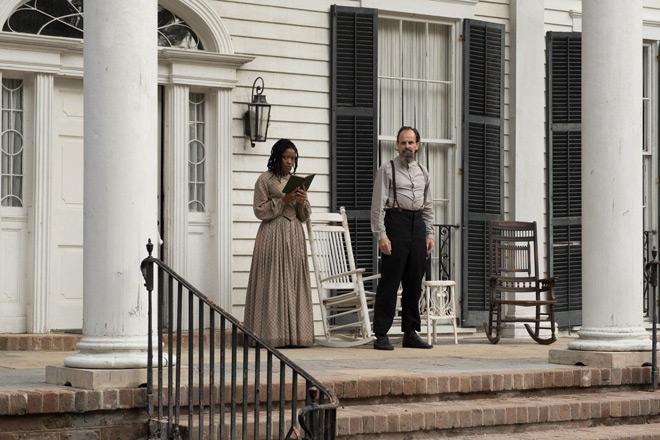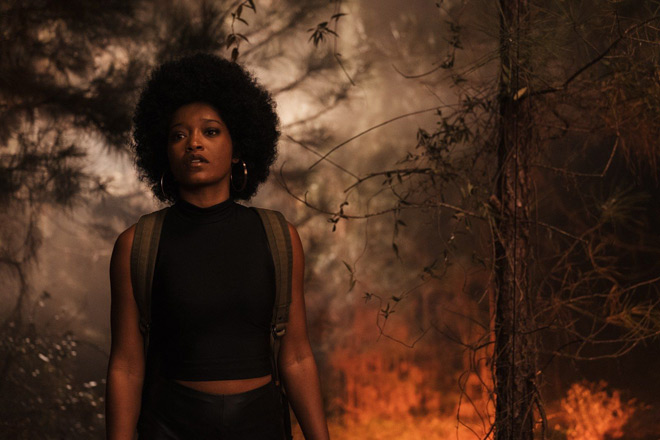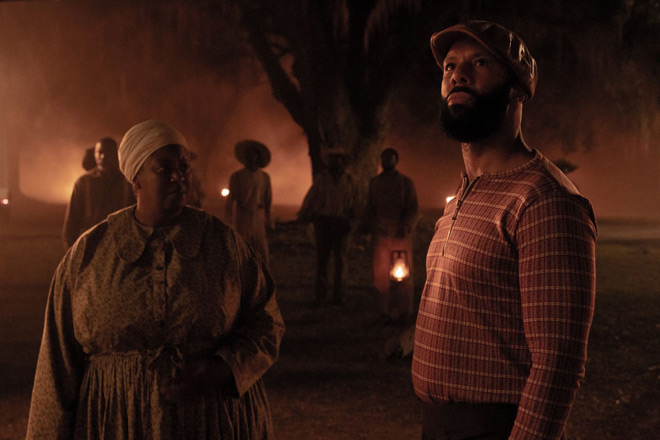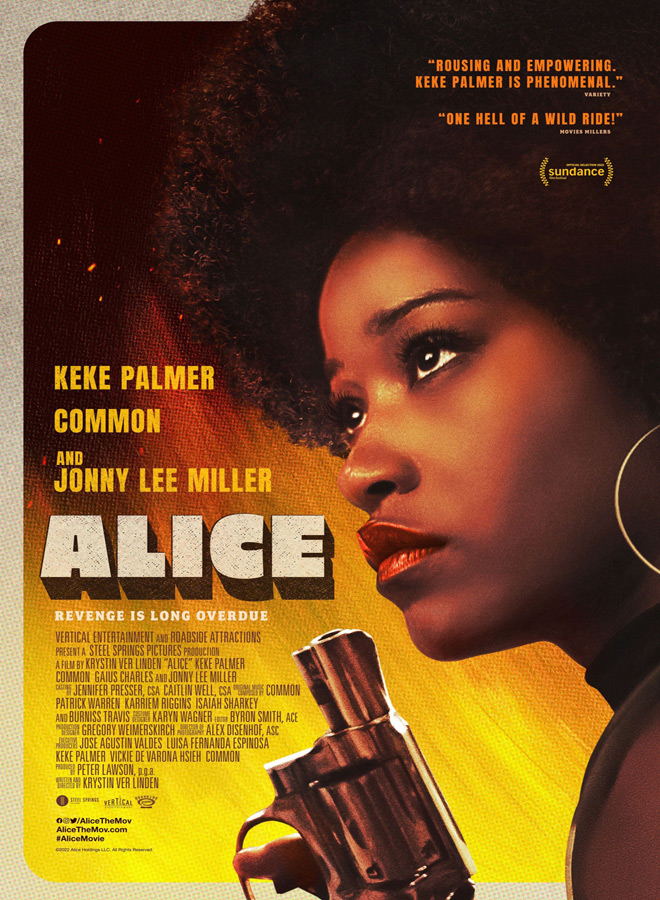it is always exciting to see work from new filmmakers, especially when those filmmakers open a window into the past that gives audiences a fresh look at history. Director-Writer Krystin Ver Linden makes her debut with Alice, a story based on true events. The film hits theaters on March 18th via Vertical and Roadside Attractions.

Starring the excellent Keke Palmer (Pimp 2018, Hustlers 2019), Common (Wanted 2008, John Wick: Chapter 2 2017), and Jonny Lee Miller (Dracula 2000 2000, Mindhunters 2004), Alice tells of an enslaved woman who escapes the abuses of her demented slave owner, Paul (Miller), only to discover that the year is 1973—over 100 years after the Emancipation Proclamation. In the middle of a Georgia highway, Alice meets Frank (Common), a disillusioned Civil Rights activist. Frank, unable to leave Alice in a racist medical system, takes her to his home. There, Alice discovers the truth about the injustices she suffered and is empowered by the work of Pam Grier and the promise of Black liberation.
Ver Linden was inspired by the innumerable tales of enslaved people who were purposefully made unaware of their freedom, particularly in the American South. The film begins as one would expect—on a plantation. These first scenes lull viewers into thinking we are somewhere in the early 19th century. As expected, we must watch as heinous violence is committed against enslaved Black people (though we are thankfully spared seeing any of the sexual assault Alice experiences at Paul’s hands). However, when that violence is done against white characters, those gory details are strangely sparse. Paul and the other white people on the plantation pointedly refer to slaves as “domestics,” though we all know what is really going on. As anachronisms slowly begin to appear—a lighter, the light from a child’s television—Alice makes her opportunity to escape.

With all that in mind, the midpoint “twist” that the year is 1973 would be totally shocking, but every poster, trailer, and synopsis for the film explicitly gives that away. Still, it is nearly a full hour into a short 100-minute film that Alice begins to discover the truth about what has happened to her, and longer still until she finds the empowerment to take matters into her own hands. This does her character a great disservice. Had she made her escape and discovery sooner, her growth would have felt powerful and personal. Instead, it is a rush toward revenge that, no matter how deserved, loses Alice as a character.
Still, Palmer’s performance is nuanced and stunning. Alice’s first scream of freedom after a lifetime of forced silence is easily the most moving moment in the film. She commands the screen so fully that we will undoubtedly see her starring in big-budget blockbusters for years to come. Miller, too, completely disappears into his villainous role.

While the film suffers from pacing issues, there are still elements to enjoy in Alice. The rich colors of the production design and striking costumes of the 1970s keep the film visually interesting, especially in contrast to the subdued colors of the plantation. At the very least, Alice hints at an exciting career ahead for Ver Linden. For these reasons, Cryptic Rock gives Alice 3 out of 5 stars.






No comment